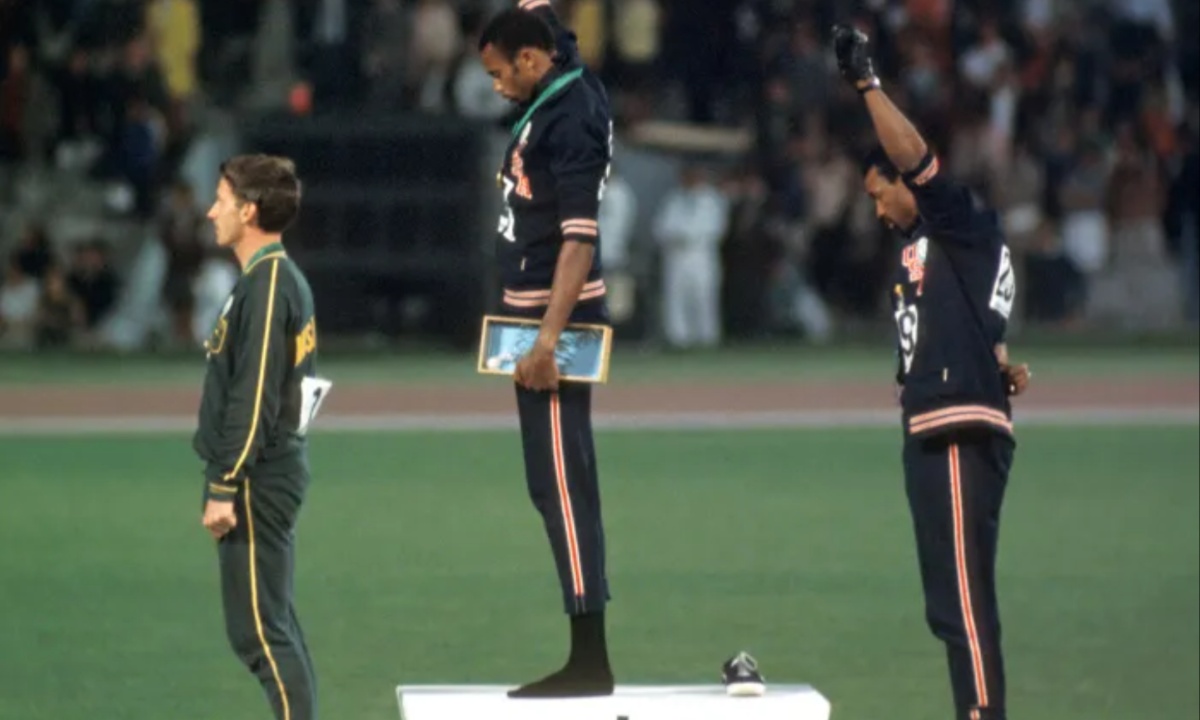Athletes have long used their platforms to address societal issues, blending sports and activism into a powerful force for change. Colin Kaepernick’s 2016 protest against racial inequality and police brutality is one of the most recent and polarizing examples. However, this form of resistance is deeply rooted in history. From boycotts to public demonstrations, these acts of defiance have often come with significant personal and professional sacrifices. This summary revisits key moments in athlete protests, reshuffled to shed light on the varied contexts and impacts of their actions.
1. 1968: Tommie Smith and John Carlos at the Olympics
At the 1968 Mexico City Olympics, Tommie Smith and John Carlos staged one of the most iconic protests in sports history by raising black-gloved fists on the medal podium during the national anthem. Their act of solidarity with the Black Power movement cost them their Olympic careers, as they were expelled from the Games and faced media vilification. Supported by silver medalist Peter Norman, the protest drew attention to racial injustice globally and remains a defining symbol of human rights advocacy.
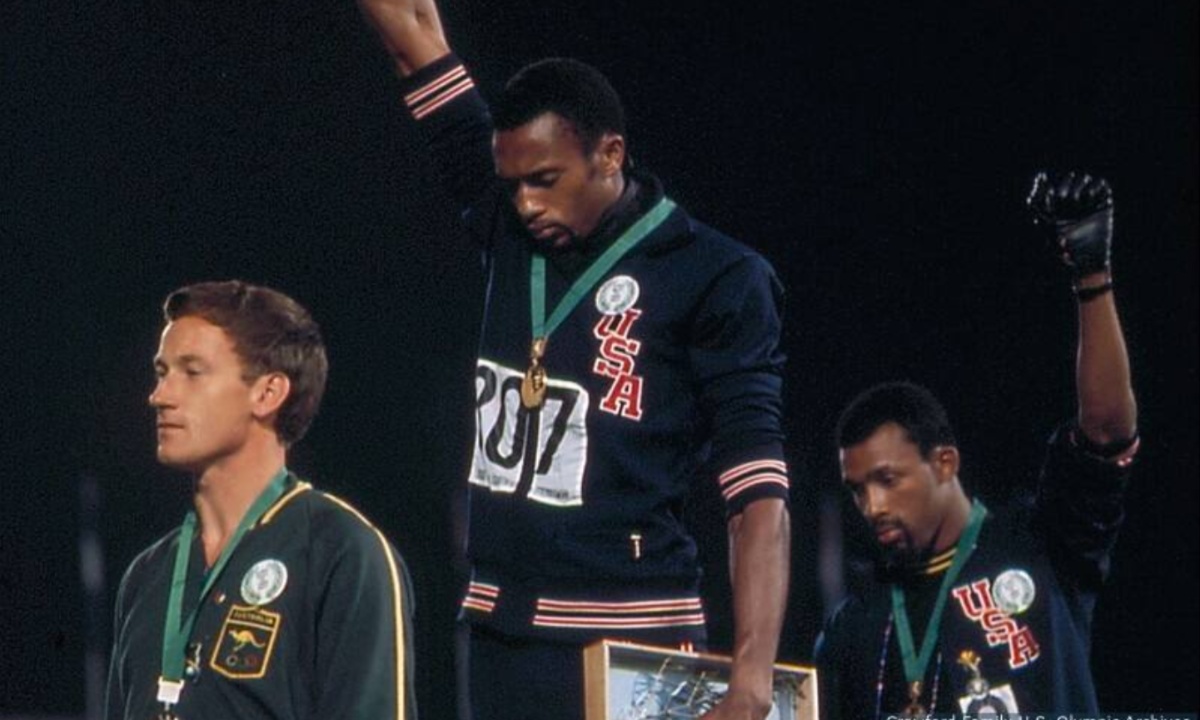
2. 1970: Billie Jean King’s Fight for Pay Equity
Tennis legend Billie Jean King became a trailblazer for gender equality in sports when she boycotted a 1970 tournament over unequal prize money. Organizing a rival women’s tennis tour, King’s activism pressured organizers to offer better payouts, culminating in equal prize money at the U.S. Open in 1973. Her leadership reshaped women’s tennis, established the Women’s Tennis Association, and proved that athletes could successfully challenge systemic inequities within their sports.
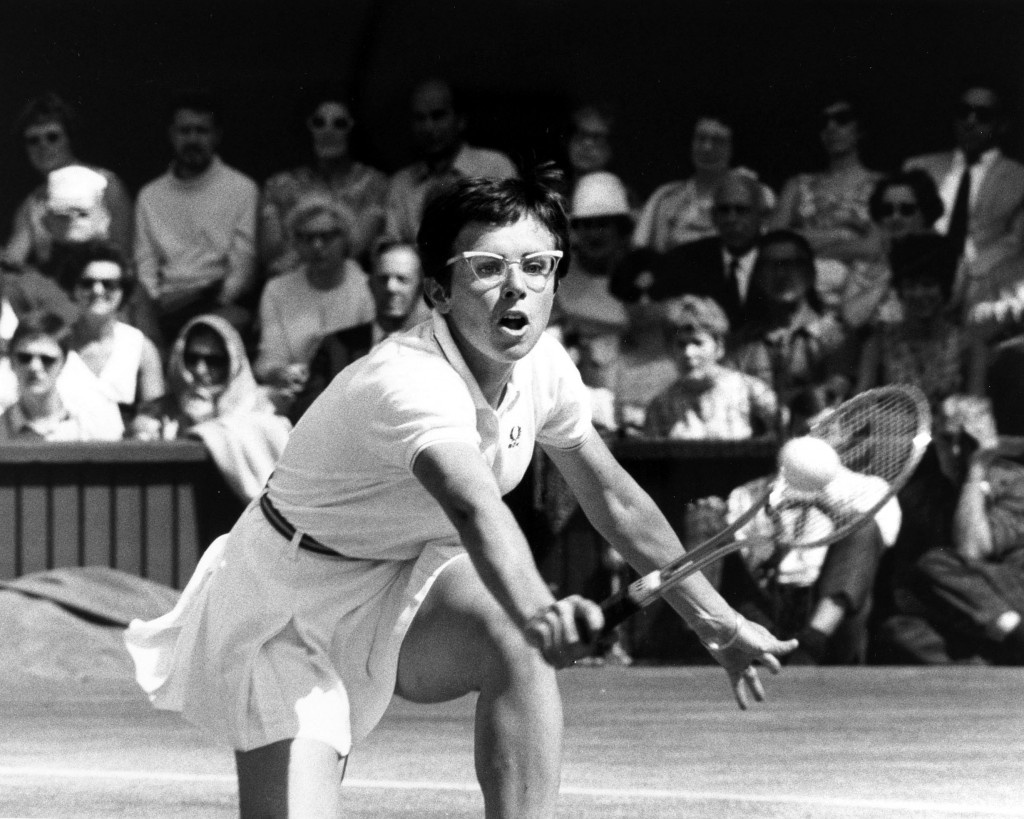
3. 1965: AFL All-Stars Relocate Their Game
In 1965, Black players selected for the AFL All-Star Game refused to play in New Orleans due to widespread racial discrimination. Taxis wouldn’t pick them up, and nightclubs denied them entry. Their protest led to the game’s relocation to Houston, supported by AFL Commissioner Joe Foss. The boycott accelerated desegregation in New Orleans, as business owners realized the economic consequences of segregation. The incident underscored the power of collective action in achieving social change.
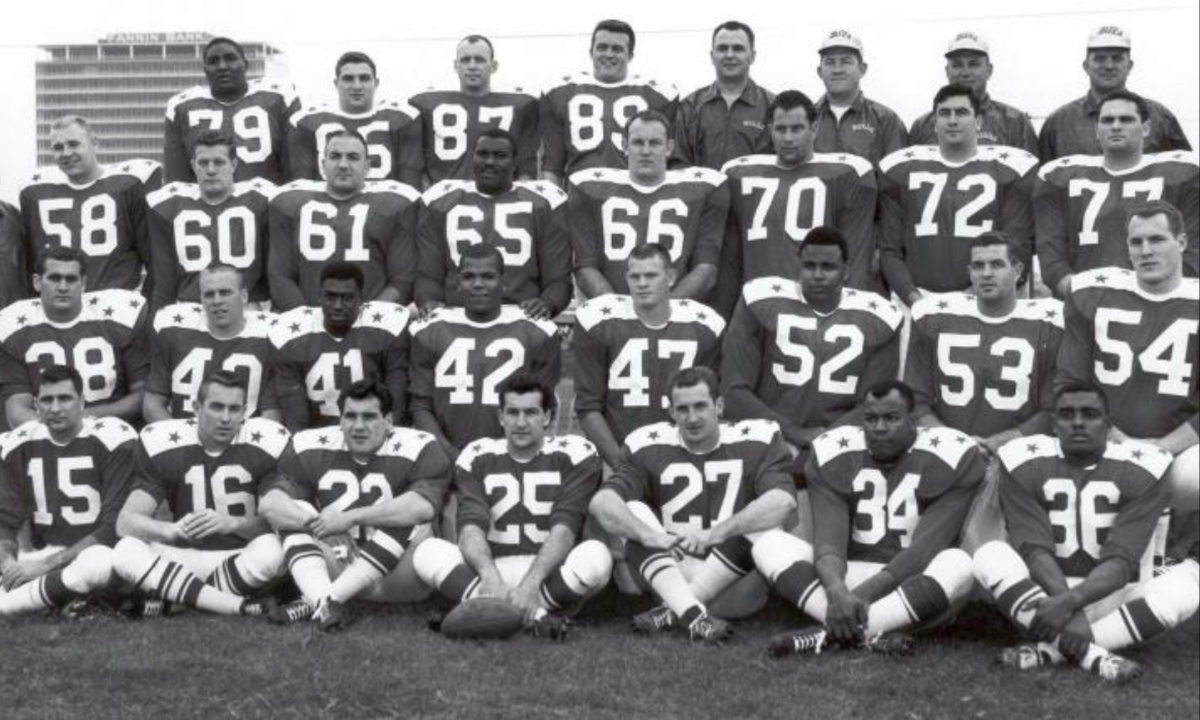
4. 1961: Bill Russell and the Celtics Boycott
When Bill Russell and four Black teammates on the Boston Celtics were refused service at a Kentucky restaurant in 1961, they decided to boycott a planned exhibition game. Russell’s stand underscored the ongoing fight for civil rights. While the team faced criticism, Celtics owner Walter Brown vowed not to schedule games in the South again, demonstrating support for his players. Russell’s activism solidified his legacy as a civil rights advocate and one of the NBA’s greatest icons.
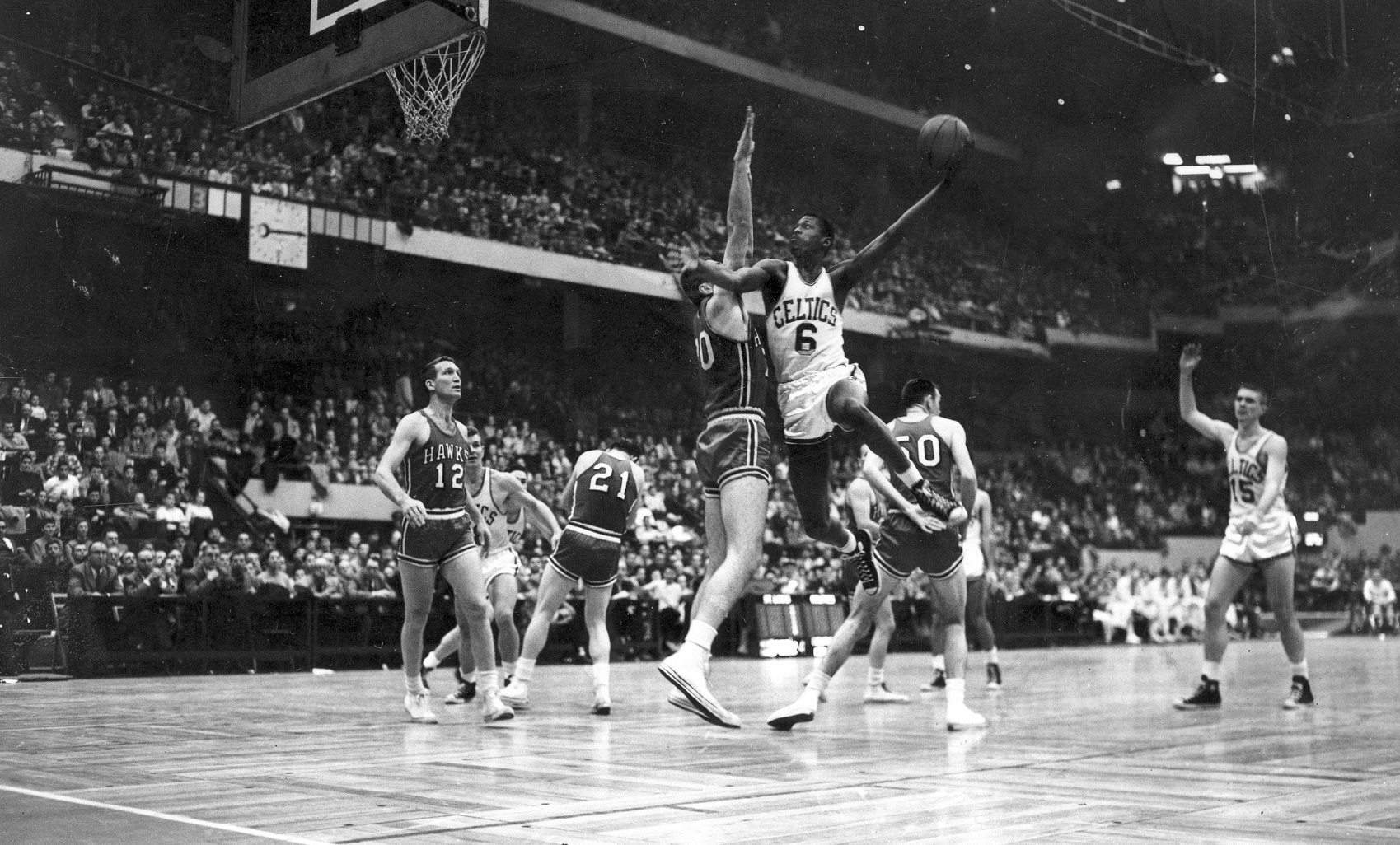
5. 1969: Wyoming’s Black 14 Ban
In 1969, 14 Black football players at the University of Wyoming were dismissed from the team for planning to protest alleged racial discrimination by Brigham Young University. Their dismissal sparked solidarity from other athletes and widespread backlash. The university issued a formal apology decades later, but the incident highlighted the systemic challenges Black athletes faced and the risks of activism in collegiate sports. This protest remains a symbol of resistance against institutional racism.
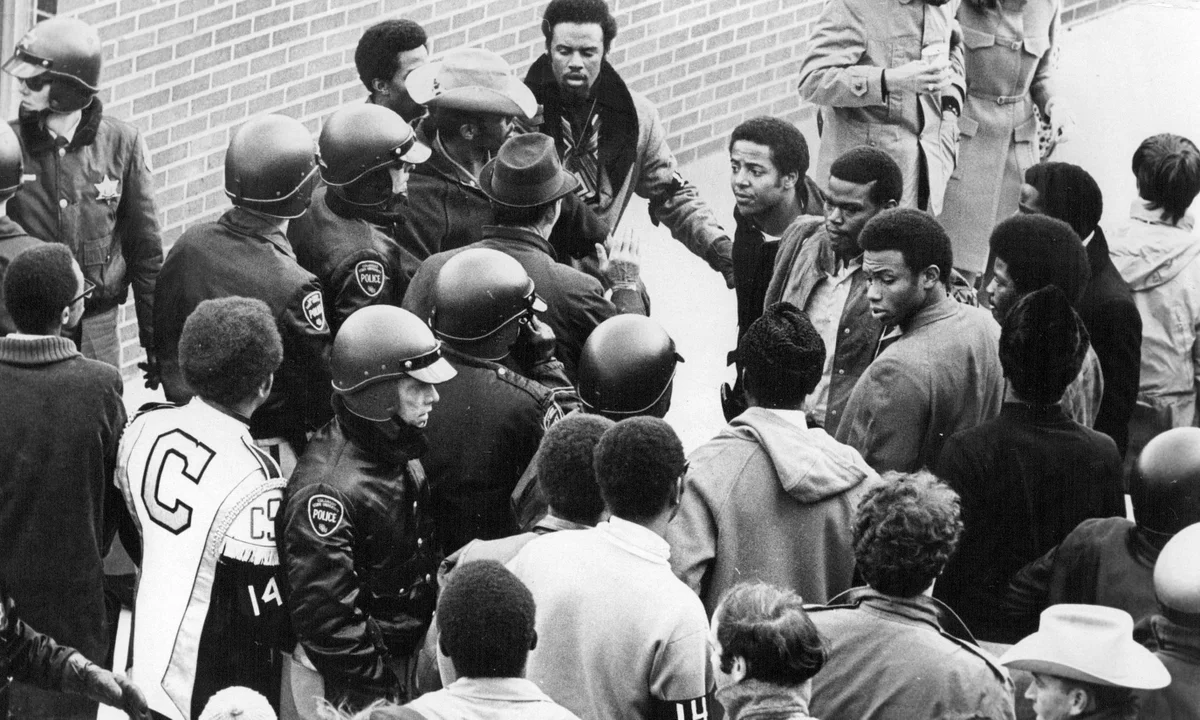
6. 1995: Mahmoud Abdul-Rauf’s Anthem Protest
In the 1995-96 NBA season, Mahmoud Abdul-Rauf refused to stand for the national anthem, citing his Muslim faith and opposition to the flag as a symbol of oppression. His one-game suspension led to a compromise allowing him to pray during the anthem, but his stance effectively ended his career. Abdul-Rauf’s protest underscored the personal costs athletes often bear for challenging deeply ingrained societal norms through their platforms.
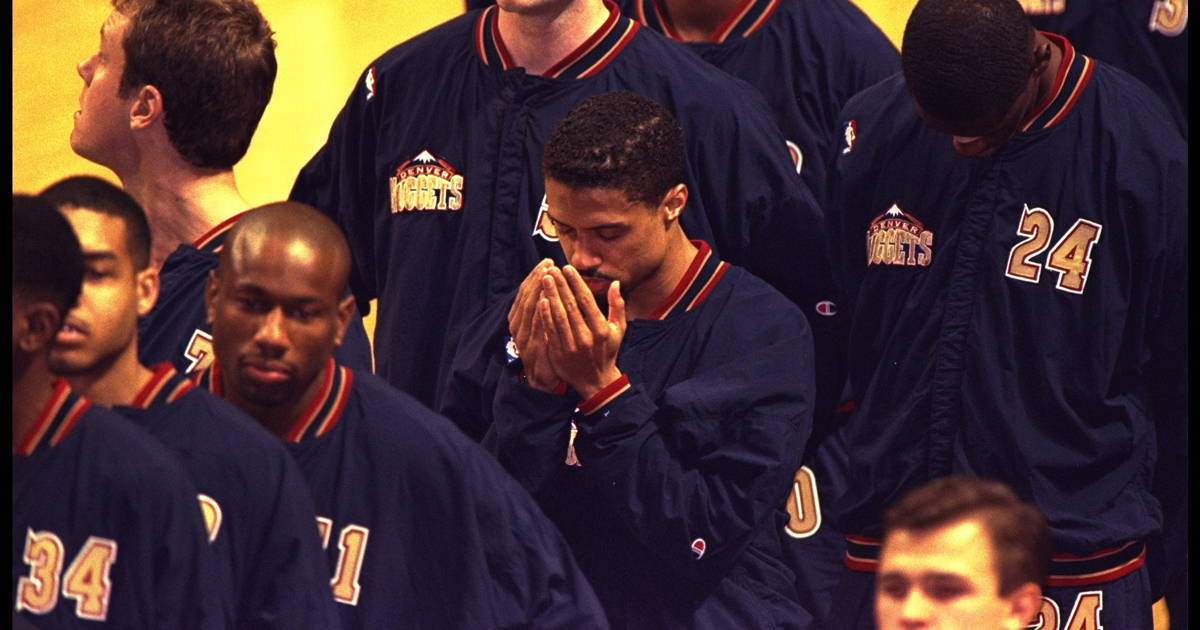
7. 1970: Syracuse Nine Boycott Season
In 1970, nine Black football players at Syracuse University protested racial inequality by boycotting the season. They called out the lack of Black coaching staff and unequal access to resources. Despite backlash from teammates and fans, their protest drew national attention to institutional racism in college sports. The players ultimately graduated, but their careers were sacrificed in the name of justice, highlighting the sacrifices activists often make for systemic change.
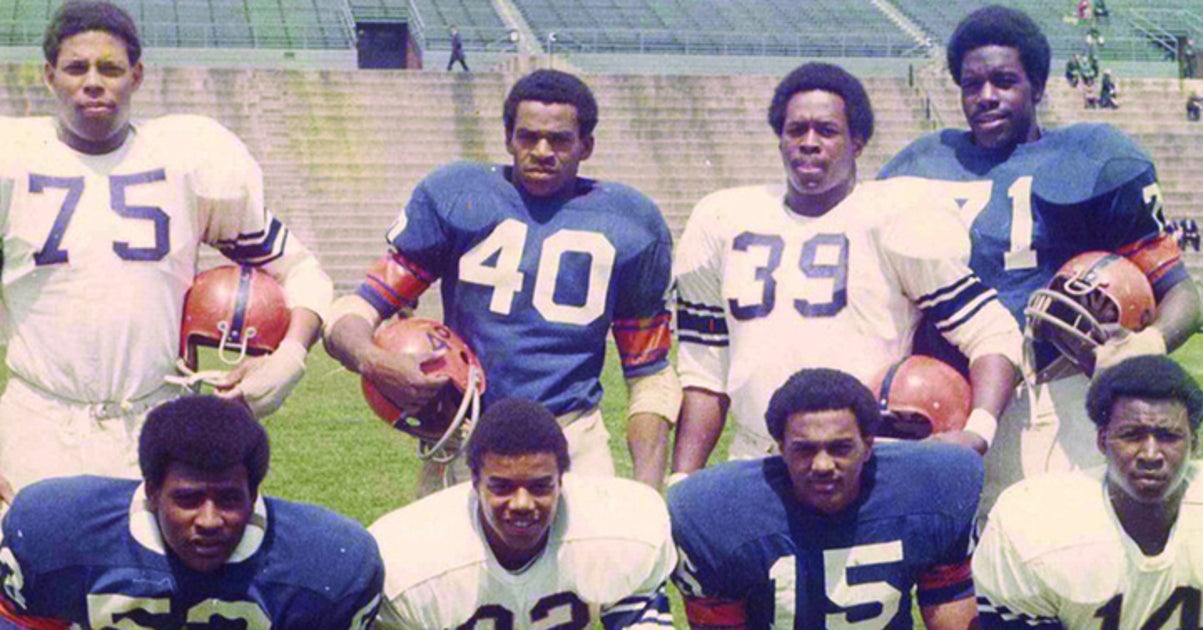
8. 1967: Muhammad Ali Refuses the Draft
Muhammad Ali’s refusal to be drafted into the Vietnam War in 1967 was a profound act of resistance. Citing religious beliefs and ethical objections, Ali was stripped of his heavyweight title and banned from boxing. Despite public scorn and a five-year prison sentence (later overturned), he remained steadfast in his convictions. Ali’s protest not only solidified his reputation as an activist but also challenged America’s role in the Vietnam War, reshaping his legacy as a global icon for justice.
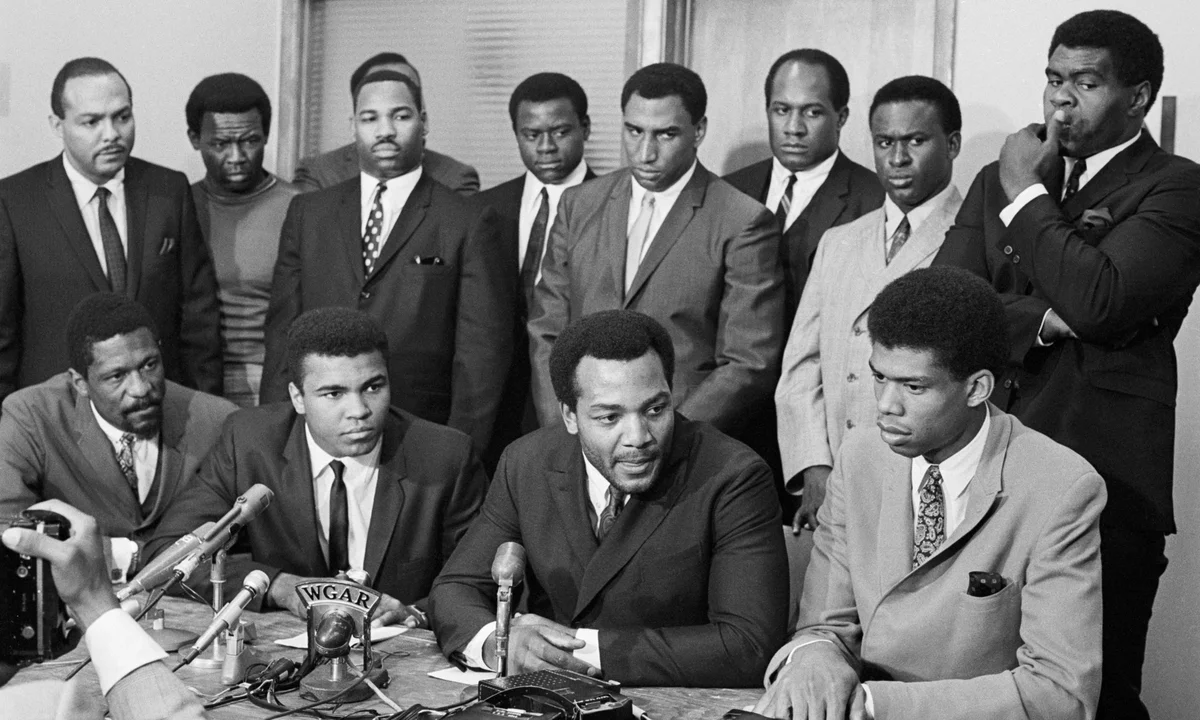
These historical protests illustrate the powerful intersection of sports and activism. Whether fighting for racial equality, gender pay equity, or broader human rights, these athletes exemplified courage in the face of adversity. Their sacrifices and actions ignited conversations that transcended sports, inspiring future generations to continue advocating for justice. While the contexts and causes vary, these protests collectively highlight the enduring power of athletes to effect meaningful change on and off the field.
